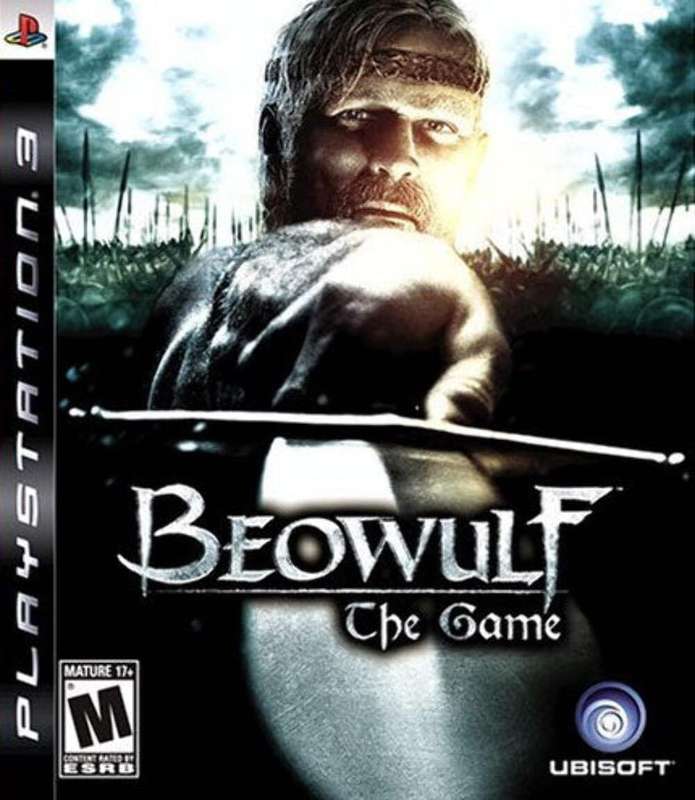
Beowulf - The Game (PS3)
Check my rate
View locations
| Main centres: | 1-3 business days |
| Regional areas: | 3-4 business days |
| Remote areas: | 3-5 business days |

| Main centres: | 1-3 business days |
| Regional areas: | 3-4 business days |
| Remote areas: | 3-5 business days |
Status:
Complete and Play Tested
----------------------------------
Released in 2007 alongside the animated film directed by Robert Zemeckis, Beowulf: The Game is a loose adaptation that follows the legendary Norse warrior's journey across monster-ridden lands. Developed by Ubisoft, it attempts to merge brutal hack-and-slash combat with mythological storytelling. Unfortunately, on PS3, the game feels like an uninspired, repetitive, and graphically underwhelming tie-in that struggles to find its identity.
| Feature | Description | Verdict |
|---|---|---|
| Combat | Basic melee system with light/heavy attacks, grapples, and brutal Heroic Storm mode for damage boosts. | Repetitive button-mashing. Lacks depth, weight, or satisfying feedback. |
| Commands | You control Beowulf and issue orders to a group of Thanes to push objects or help in battle. | Clunky and underdeveloped. Companion AI is unreliable and frustrating. |
| Heroic vs Carnal Paths | Choices between noble or savage actions supposedly affect character development. | Barely impacts gameplay or story; feels like a missed opportunity. |
| Boss Fights | Large-scale battles against creatures like sea serpents, trolls, and Grendels kin. | Thematic but often frustrating due to poor controls and erratic camera angles. |
Combat and movement feel stiff, with clumsy animations and long recovery windows. The game clearly aims for God of War levels of epic but lacks polish and precision.
The game begins with the events of the filmBeowulf slaying Grendeland expands into a 30-year reign filled with demonic threats and personal downfall. While rooted in epic lore, the narrative is poorly told through disjointed cutscenes and awkward voice acting.
Strengths
Expands on Beowulfs untold reign, offering new (albeit shallow) material.
Some cinematic sequences mirror the films motion capture aesthetics.
Weaknesses
Dialogue is ham-fisted and often unintentionally funny.
Beowulf is portrayed more as a brutish dullard than a tragic hero.
Character development is virtually nonexistent.
Visuals: Unimpressive for a PS3 gameeven for an early title. Models are blocky, textures are muddy, and environments are mostly brown and lifeless.
Lighting & Effects: Overuse of bloom and screen tearing during action-heavy sequences.
Performance: Frame rate dips during battles and cinematic moments.
Camera: One of the biggest flawsfrequently misaligned during fights or platforming sections.
Compared to other PS3 titles of the time (Uncharted: Drakes Fortune, Heavenly Sword), Beowulf looks and feels like a late PS2 game awkwardly scaled up.
Voice Acting: Features Ray Winstone reprising his role as Beowulf, but the script is laughable, and delivery lacks energy.
Sound Effects: Weapon clashes and monster roars are serviceable but lack punch.
Music: Generic orchestral score that blends into the background, offering little dramatic weight.
Menus are functional but barebones, with no effort to create a mythic or immersive UI.
Single Player Only No co-op or multiplayer options.
Collectibles Hidden runes and upgrades scattered throughout, though uninspired.
Length Around 810 hours, but feels longer due to pacing issues and monotony.
Pros
Expands on Beowulfs myth beyond the film
Large enemy variety, including some boss-scale monsters
Ray Winstone voicework (even if wasted on bad writing)
Cons
Extremely repetitive and shallow combat
Ugly visuals and technical hiccups
Terrible camera and stiff animations
Wasted potential in the morality system
Boring level design and tedious objectives
Beowulf: The Game is a textbook example of a rushed movie tie-inambitious in concept but poorly executed in nearly every aspect. Its hack-and-slash combat lacks refinement, and its mythological setting is let down by bland visuals and mindless design. Unless you're a hardcore fan of the film or Norse legends, there's little reason to suffer through this outdated, joyless brawler.
Score: 4.5 / 10 A mythic tale reduced to button-mashing mediocrity. Worth skipping, even for fans of the source material.